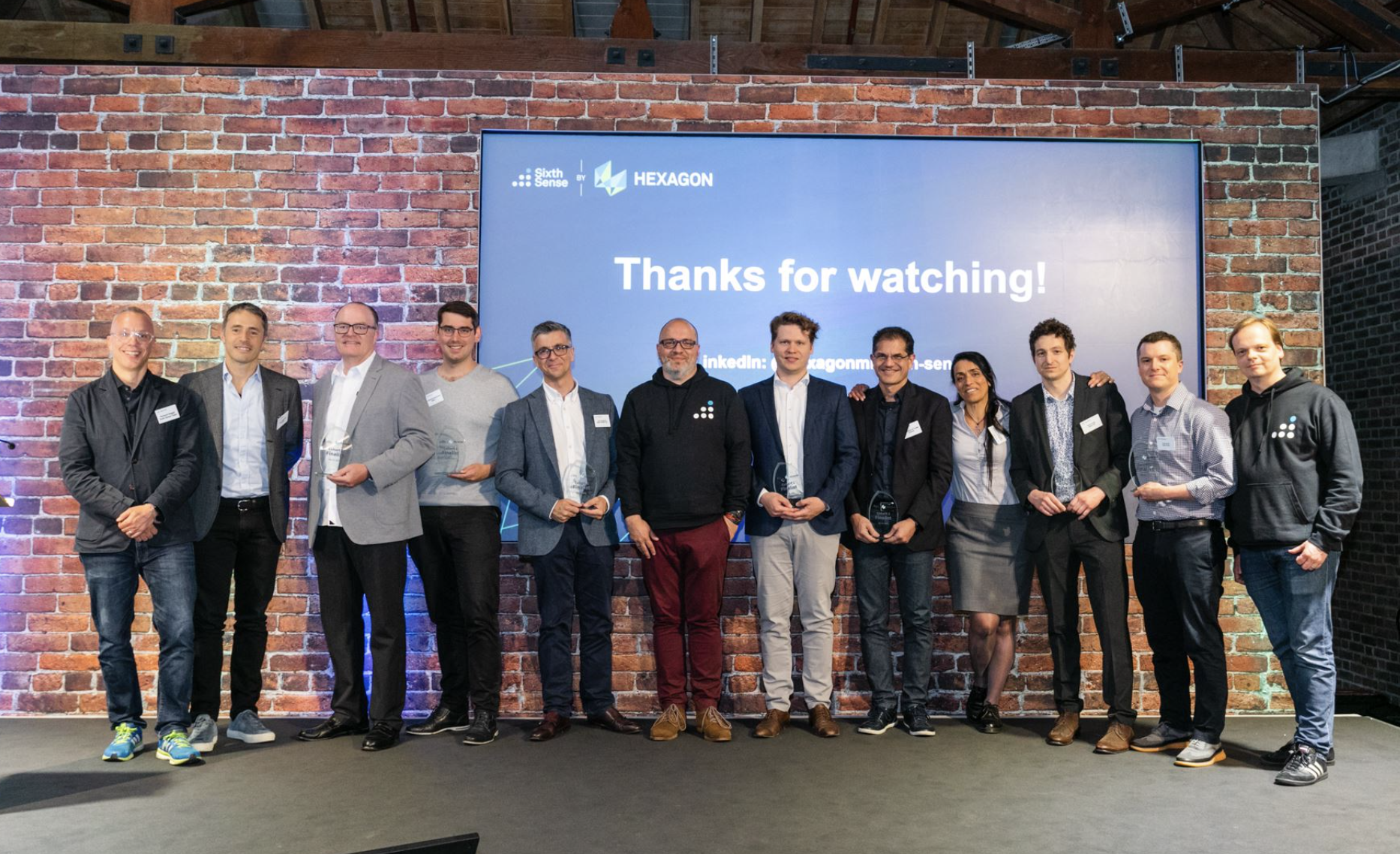When Sixth Sense launched in January 2022, it was the first time Hexagon had created an in-depth engagement programme for working with start-ups. Of course, we had relationships with start-ups and collaborated with them on occasion but there was no formalised vehicle to help us meet and work with start-ups in our space. We wanted this to change.
What followed was an amazing 10-week programme for our first ever challenge, which saw us work closely with seven inspiring start-ups from across the world. Not only did we get to meet and get a better understanding of other businesses in our space – we also learned a lot about Sixth Sense and how we might be able to take a great thing and make it even better the next time around.
Here are my biggest learnings from cohort one – what start-ups need and how we’ll address these as we move into our second challenge with a fresh and exciting crop of scaling start-up businesses.
1. Start-ups are looking for more than money (but some do need it)
We found in our original interviews when designing the platform that for most start-ups just being handed a cheque for equity doesn’t cut it. It’s better to support product-market fit. But some companies do require the funding, which isn’t originally what we were set up for. We don’t have a venturing arm yet. Our focus is typically on acquisitions.
Instead, we have connected to half a dozen VC leaders in advanced manufacturing and are sharing opportunities with them. We hope to see some positive outcomes out of this soon.
2. We need to hit the ground running with intros
We definitely knew that we wanted to be more intentional with our next cohort. We’re going to work to create outcomes for the companies from the start, by involving more business unit owners and including more of the management team from the beginning. We’ll connect them with the start-ups immediately and find that fit.
3. Global cohorts are hard to handle
We certainly had a challenge around coordinating companies from all around the world, particularly when it comes to global events. Trying to coordinate Europe, Brazil and the US all at once took a while. Also the level of engagement from companies to the programme and coach/mentor offering varied.
For cohort two, even though time zones will always be a challenge, we are offering more flexibility and adjusting schedules to accommodate everybody. As far as mentoring goes, we have a slightly different approach this time, we have three main mentors/coaches who are working with assigned start-ups and then leaning on a wider group of mentors when required for specific areas – IP, product, branding, etc.
4. European companies aren’t as accustomed to pitching
We discovered that European companies tend to have less investor pitching experience as quite a few of them seem to receive initial finance via grants through university networks or manufacturing institutes like Fraunhofer so they require a little more support to prepare for pitching events.
I would say that everybody in cohort two still needs help in compelling storytelling and that is where mentors and Hexagon partners like Seven Hills and April 6 come into play. We actually give media training as part of our program to help improve the storytelling portion of their pitches.
5. Manufacturing isn’t the centre of attention
We found there was less conversation about manufacturing in general – onshoring and sustainability are more pervasive. Ideas and thoughts about manufacturing have to both be more prevalent in our kids’ education and also in our politicians’ policies. We are working on ideas about how to start those conversations – Hexagon wants to ensure people understand how manufacturing plays an important role today and what opportunities exist for the future.
6. Diversity continues to be a challenge in our sector
If there is one thing to pick that we failed at, it is diversity. It’s proving very difficult to find diverse companies in this field. That does not mean that we stop trying. It means that in the long run we have to start reaching out to other organisations to raise awareness of what we are trying to do. We are very vocal in encouraging underrepresented groups in this field to reach out to us and will continue to encourage them to do so.
Looking to the future
We’re excited to be on this journey with so many amazing start-ups and partners. One thing we’re all in agreement on is that we will evolve together. All the above learnings have corresponding actions – some easier to resolve than others – but we’re working hard to ensure Sixth Sense becomes the best open innovation platform in the sector. Smart manufacturing has the potential to solve big problems – we’re determined to make it happen.

